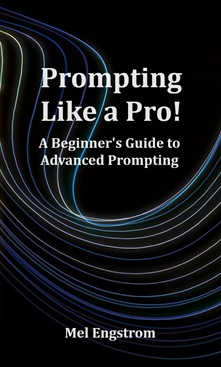In a world where artificial intelligence (AI) is revolutionizing productivity and learning, mastering the art of training tools like ChatGPT can be a game-changer.
Do you find it challenging to maximize ChatGPT’s potential for tailored outcomes? Fear not, as we delve into practical strategies that will elevate your ChatGPT game to new heights and get ChatGPT “trained up.”
1. Know ChatGPT Inside Out
Understanding what ChatGPT can and cannot do is crucial. Are you aware of its capabilities and limitations? By grasping its strengths, like generating tailored responses and aiding in brainstorming, you can harness ChatGPT effectively. Here’s the first thing to learn when looking for how to train ChatGPT.
What ChatGPT Can Do:
- Generate text-based responses tailored to your instructions.
- Assist with tasks like brainstorming, drafting, and refining ideas.
- Role-play as an expert in various fields to provide advice or insights.
What ChatGPT Can’t Do:
- Retain knowledge permanently between sessions.
- Provide real-time updates or new data unless connected to plugins or tools.
- Solve highly specialized problems without detailed input from you
2. Craft Clear and Specific Prompts
Are vague responses hindering your ChatGPT interactions? That’s what typically propels people to want to learn how to train ChatGPT. Start with specific prompts to receive accurate and helpful results. The more context you provide, the better ChatGPT can assist you.
Examples of Specific Prompts:
- Vague Prompt: “Help me write something.”
- Specific Prompt: “Write a professional email apologizing for a delayed shipment, emphasizing our commitment to customer satisfaction.”
The more context and detail you provide, the better ChatGPT will perform.
3. Refine Through Iteration
Ever thought of interacting with ChatGPT as a dialogue? By refining responses through feedback and tweaking inputs, you can fine-tune ChatGPT’s output to meet your expectations. How about giving it a try?
How Iteration Works:
- Start with an initial prompt: “Summarize this article for a general audience.”
- Review the response and refine: “Can you make it more concise?” or “Add examples to illustrate the points.”
- Repeat until the output meets your expectations.
I have a lot more examples and tips on this in my book “Prompting Like a Pro” which is linked to underneath this post if you’d like more training on this.
4. Set the Scene and Roles
Did you know ChatGPT shines when you define the role it should play? You can learn how to train ChatGPT and by setting context and roles like a business coach or screenwriter, you guide its responses effectively. Isn’t that intriguing?
Examples:
- “Pretend you are a business coach advising on a marketing strategy.”
- “You are an expert screenwriter. Help me draft a dialogue-heavy movie scene.”
This approach allows you to tailor ChatGPT’s tone, depth, and expertise level.
5. Customize for Success
Did you know that customizing ChatGPT’s instructions can enhance your experience? Setting preferences for tone, detail, and style can truly personalize your interactions. Imagine the possibilities!
Many ChatGPT versions allow you to set preferences, such as tone, level of detail, and style.
- Example: “Always provide three actionable tips in your response.”
Build a Framework for Sessions:
If your session involves multiple tasks, create a framework. For example:
- “First, list five ideas for a blog post. Then, expand on the third idea with an outline.”
6. Utilize Examples and Templates
Want to boost ChatGPT’s understanding of your needs? Providing examples and creating templates can streamline your communication. Show it the way, and watch it shine!
Show ChatGPT what you’re looking for by including a sample or description of the desired output.
- Example: “Here’s a sample blog post introduction I like. Use this style for my content.”
Create Templates:
If you’re doing recurring tasks, save successful prompts as templates to reuse later.
7. Embrace Advanced Features
Are you ready to learn how to train ChatGPT to go to the next level? Explore plugins, integrations, and multimodal inputs to expand its capabilities. Think of the endless possibilities with advanced features!
Plugins and Integrations:
- Use browser plugins to fetch real-time data.
- Explore code interpreters for programming tasks or data analysis.
Multimodal Input:
If supported, combine text and images to enrich your interactions. For example, use an image of a chart for analysis.
8. Build Your Knowledge Base
Imagine having a library of effective prompts at your fingertips. By saving successful interactions and sharing techniques with your team, you can optimize outcomes and efficiency. Sounds exciting, doesn’t it?
Save Effective Prompts:
Create a document or library of prompts that worked well for specific tasks. This will save you time and ensure consistency in future interactions.
Share and Collaborate:
If you’re working with a team, share your effective prompts and techniques. This fosters a shared understanding and improves outcomes across the board.
9. Ethical Usage Matters
Responsible use of ChatGPT is key. While it’s a powerful tool, combining its output with your expertise is essential. Remember to respect privacy and avoid sharing sensitive information. Are you ready to unleash ChatGPT’s potential responsibly?
Avoid Over-Reliance:
While ChatGPT is powerful, it’s essential to pair its output with your own critical thinking and expertise.
Respect Privacy and Data Sensitivity:
Avoid sharing sensitive or confidential information in your prompts to protect privacy and security.
Final Thoughts
Training ChatGPT isn’t just about communication; it’s about mastering the art of effective interaction.
By exploring these techniques today, you can enhance your ChatGPT experience significantly. Why not start now?
Love,


